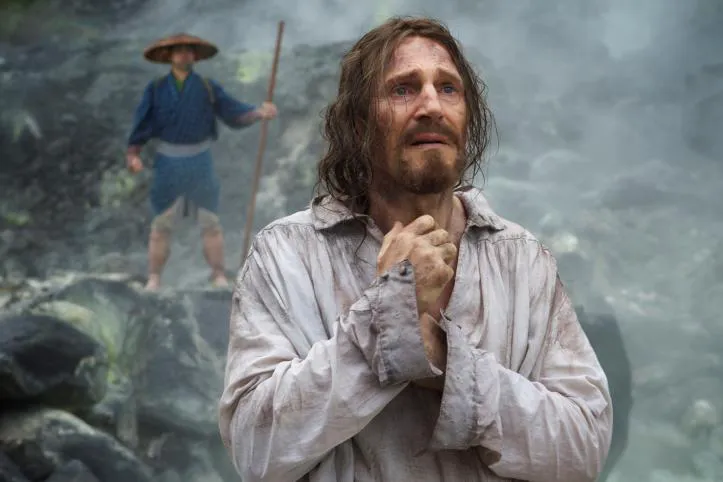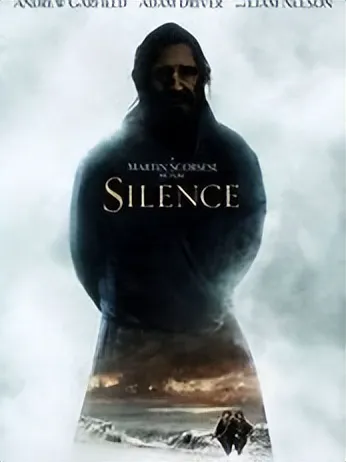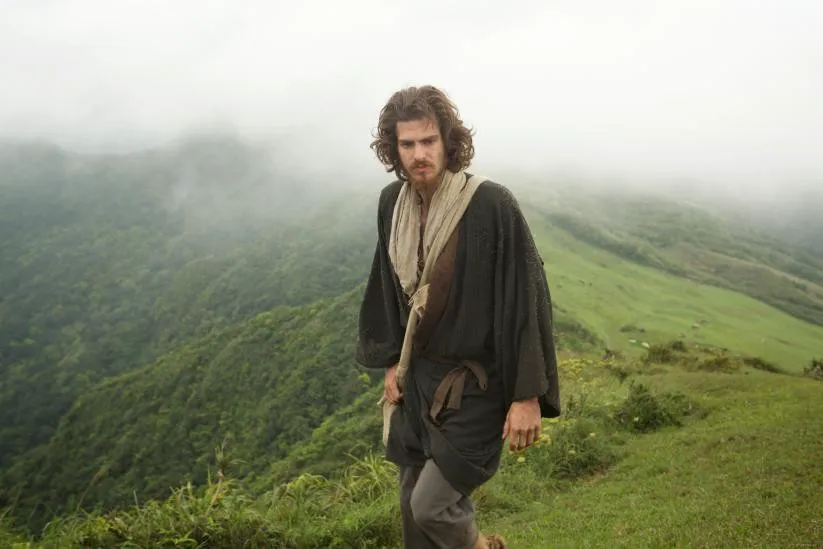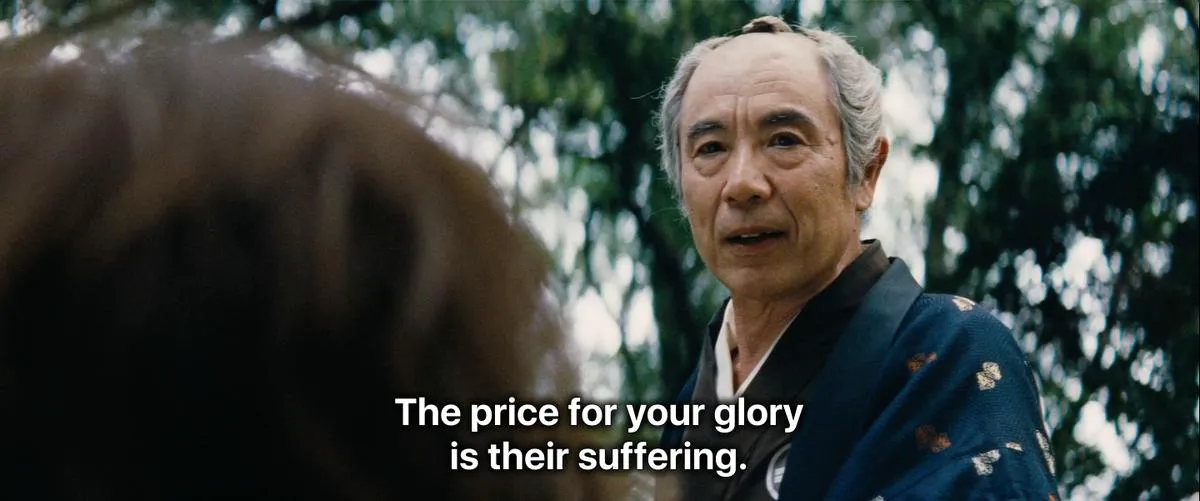Faith and Doubt: Exploring Moral Dilemmas in “Silence”
The film “Silence” masterfully delves into the complex interplay between faith and betrayal, presenting a stark exploration of individual choices when confronted with unimaginable trials. At its core, the movie grapples with the agonizing decisions one must make when religious conviction clashes with the brutal realities of survival.
Today, we’ll dissect the central themes of “Silence,” focusing on the dilemmas individuals face when faith and truth collide. Through a close examination of the plot, character development, and thematic elements, we’ll uncover the profound and thought-provoking questions this film raises.
The Predicament of Faith and Betrayal
The protagonists of “Silence” find themselves in an excruciating situation. As missionaries venturing into a foreign land to spread the tenets of Christianity, they are met with fierce persecution and inhumane torture. This extreme environment forces them to confront the agonizing choice between upholding their faith and committing what they perceive as betrayal.
On one hand, they yearn to remain steadfast in their devotion to God and their loyalty to Christianity, willingly enduring unspeakable suffering and even death. On the other hand, they face immense pressure to renounce their faith in order to survive and protect their fellow believers.
This predicament highlights the inherent tension between faith and betrayal. In such a brutal setting, the protagonists are compelled to re-evaluate the very foundations of their beliefs and allegiances.

Their struggle extends beyond merely preserving their own faith; they must also consider the lives of other Christians. Their decisions carry immense weight, impacting not only their individual beliefs but also the fate of the entire Christian community.
By portraying the protagonists’ agonizing choices and inner turmoil in the face of persecution, “Silence” prompts viewers to contemplate the true meaning of faith and betrayal.
The film compels us to ask: In the face of extreme adversity, should one remain steadfast in their faith, even if it means risking danger and death? Or should one choose to betray their beliefs in order to protect themselves and their fellow believers?

This question delves into the complexities of morality and ethics. Individuals are confronted with a moral quandary, forced to weigh their personal loyalty, moral values, and the survival of others. They must determine their own stance on faith and morality, and whether they are willing to sacrifice everything for it.
“Silence” sparks profound reflection on the nature of faith and betrayal. By depicting the protagonists’ arduous choices, the film showcases the intricacies of human nature and the challenges of ethical decision-making. Viewers witness both the fragility and resilience of the human spirit, prompting them to consider how they would act in similar circumstances.

Upholding Faith Amidst the Challenge of Truth
Directed by Martin Scorsese, “Silence” is an adaptation of the novel of the same name by Japanese author Shūsaku Endō. The film recounts the trials and tribulations of two Christian missionaries in 17th-century Japan, testing the limits of their faith.
Today, we’ll delve into the film’s central theme: “Upholding Faith Amidst the Challenge of Truth.” By analyzing the plot, character arcs, and moral dilemmas presented, we’ll explore the power of faith in the face of adversity and the complexities of truth.
“Silence” reveals the intricate relationship between unwavering faith and the challenge of truth through the experiences of missionaries Sebastião Rodrigues (Andrew Garfield) and Francisco Garrpe (Adam Driver).

During their missionary journey to Japan, the two priests encounter various trials and tribulations, including religious persecution, moral quandaries, and conflicts of faith.
They face not only brutal persecution and oppression but also the challenge of Japanese traditional culture and religious beliefs. Their faith is severely tested, and they grapple with doubts and questions about the truth of their beliefs.
Throughout the film, the missionaries remain steadfast in their faith, striving to spread Christianity to the Japanese people. However, their efforts are often met with cruel setbacks and failures. They witness the persecution and martyrdom of Japanese Christians and experience the oppression and persecution of their own faith.
In the process, they begin to question their own faith and the existence of God. They endure inner struggles and pain while delving deeper into the essence of faith and the complexities of truth.
“Silence” also explores the clash and fusion between religious beliefs and culture. Within the context of Japanese traditional culture and religious beliefs, Christianity faces significant challenges.
The missionaries find themselves in a completely unfamiliar environment, where they must not only spread their faith but also respect and understand local culture and religious concepts. This cultural clash and fusion present the missionaries with even greater moral dilemmas and challenges to their faith.

As the film draws to a close, the missionaries face ultimate choices and decisions. They must not only confront their personal faith but also consider the impact and consequences of their beliefs on others.
This unwavering faith and the challenge of truth prompt them to constantly reflect on their beliefs and code of conduct. Ultimately, whether they can uphold their faith and accept the challenge of truth becomes the focus of the audience’s contemplation.

“Silence” provokes profound reflection and contemplation on faith and truth. Viewers may contemplate their own beliefs and moral principles and empathize with the experiences and choices of the missionaries.
At the same time, viewers will also reflect on the meaning of faith and the complexities of truth and how to face tests of faith and ethical decisions in similar situations in real life.

The Choice Between Silence and Perseverance
The missionaries in “Silence” find themselves in a foreign culture, facing persecution and pressure against Christianity. They came to Japan to spread their faith but are persecuted by hostile forces.
In this brutal environment, they face the difficult choice between silence and perseverance. Silence means abandoning faith and turning away from God but can protect themselves and the lives of other believers; perseverance means loyalty to faith but entails enduring cruel torture and death.
The protagonists in the film are deeply troubled by this choice. They must not only face the test of their own faith and personal loyalty but also consider the lives of other believers. This is a moral and ethical challenge that requires weighing personal faith against the survival of others.

Some missionaries chose silence. They abandoned their faith, claiming to renounce God in order to protect themselves and the lives of other believers. Although this choice is considered a betrayal, it is a trade-off to protect lives in an extreme environment. In order to survive, they chose silence, but their hearts may always be plagued by guilt.
Other missionaries chose to persevere in their faith. They were willing to endure torture and death, adhering to their loyalty to God and their faith. They believe that loyalty to faith is the supreme value, and they are unwilling to give up their faith even in the face of death.
“Silence” shows the conflict and choice between these silences and perseverance, forcing the audience to think: When faced with cruel trials, should one choose to remain silent to protect oneself and the lives of others, or should one persevere in faith in the face of torture and death?

By showing the protagonists’ choices between silence and perseverance, the film provokes in-depth thinking about faith and perseverance, forcing the audience to think about the boundaries of personal faith and loyalty and whether one should give up faith to protect life in extreme environments.
“Silence” shows the audience the complexity of faith and perseverance. It reminds us that when faced with difficulties, we need to think about our values and loyalty to our faith. Everyone may have different choices when faced with this choice, depending on personal faith, values, and the trade-offs of survival.

Exploring Ethics and Morality
In the film “Silence,” the story mainly revolves around the experiences of two Christian missionaries, Sebastião Rodrigues (Andrew Garfield) and Francisco Garrpe (Adam Driver).
They went to Japan to preach and faced cruel persecution and oppression. In this process, they encountered many moral and ethical dilemmas.
The film reveals the conflict between personal loyalty and moral responsibility. The missionaries faced the persecution and martyrdom of Japanese Christians, while also facing choices about their own lives and faith.
They need to weigh their loyalty, being loyal to their faith and God, while also considering their own lives and the lives of others. This moral choice plunged them into inner pain and struggle.
The film explores the conflict between cultural differences and moral concepts. The missionaries were in the context of Japanese culture and religion and faced moral standards and values that differed from their own beliefs.
They must respect and understand local culture and religious beliefs, while also adhering to their own faith and moral principles. This cultural conflict brought greater moral challenges, requiring the missionaries to find a balance in the face of difficulties.

Through the film “Silence,” viewers can think about the complexities of ethics and morality. They can reflect on their own moral standards and values and think about how to make correct moral choices in the face of difficulties.
By revealing the ethical choices and inner struggles of the missionaries, the film provokes viewers to think about and explore ethics and morality. This moral discussion makes viewers reflect on the complexity of human nature and the diversity of moral choices, thereby deepening their understanding and thinking about ethical and moral issues.
Conclusion
Through its profound themes and compelling narrative, “Silence” presents viewers with the dilemma of faith versus betrayal. The audience is compelled to consider their own moral choices and the meaning of faith when faced with similar predicaments.
This film sparks introspection on personal faith, ethics, and loyalty, prompting individuals to reflect on their values and stance on faith and betrayal.